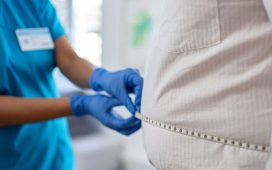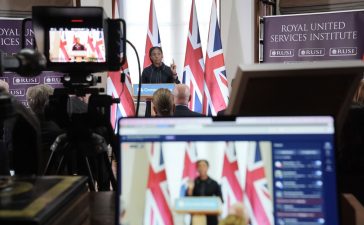It’s been hailed as a ‘life-changing’ drug that could be a blessing for tens of thousands of Brits who suffer from migraines.
Called Atogepant, the drug can halve the number of crippling attacks sufferers endure, according to rigorous trials.
The pill taken once a day, works by blocking the receptor of a protein found in the sensory nerves of the head and neck, known as the calcitonin gene-related peptide (CGRP). This protein makes blood vessels dilate, which can lead to inflammation and a migraine.
It will be an option for people who have at least four migraine days a month and who have tried at least three other treatments to no avail.
But doctors say there’s some other simple steps you can take – in combination with medicine – to prevent the agony of a migraine.
And there’s also ways to potentially stop them in their tracks…
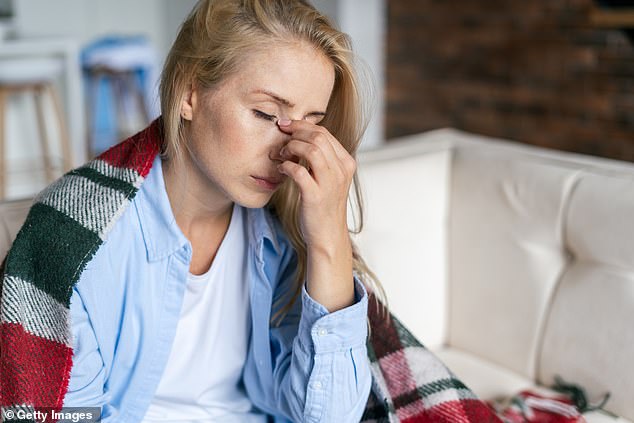
Migraines can last anywhere between two hours to three days, the NHS says. Sufferers sometimes get warning symptoms such as feeling tired, craving certain foods, changes in mood and a stiff neck before a migraine hits
How to treat a migraine
Migraines usually feel like a very bad headache and cause a throbbing pain on just one side of your head, the NHS says.
Sufferers sometimes get warning symptoms such as feeling tired, craving certain foods, changes in mood or a stiff neck before a migraine hits.
Others get problems with their vison, start to feel dizzy or even have difficulty speaking.
They can last anywhere between two hours to three days, the NHS says.
While the new pill Atogepant could half the number of migraines people suffer from.
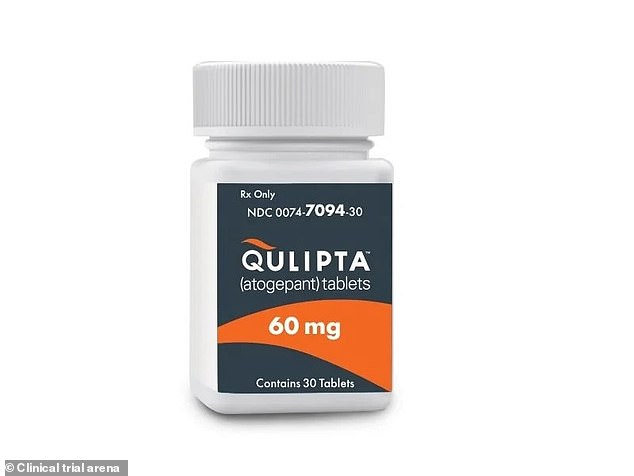
A New once-a-day pill called Atogepant could half the number of migraines people suffer from
But for many there are other ways to treat a migraine.
‘There is no cure for migraines sadly, but I work with patients to try and manage their symptoms, such as reducing sensitivity to light by sleeping or lying in a darkened room,’ Dr Hana Patel, London- based NHS GP, told MailOnline.
That’s because sounds and bright lights can often make migraines worse.
‘Normally there is a process of working with your GP to find out the best combination to manage symptoms and every migraine sufferer gets different symptoms,’ Dr Patel said.
Taking painkillers such as ibuprofen and paracetamol can help reduce the pain in some cases, the NHS says.
In others patients are offered medicines called triptans, which work like a brain chemical called serotonin which helps to calm down overactive pain nerves.
Some people also take medicines in combination with drugs that stop you feeling sick or being sick, which can be a symptom of a migraine.
Dr Patel said: ‘People may manage their migraine pain symptoms using over the counter medications, and anti inflammatory drugs.
‘They tend to be most effective if taken at the first signs of a migraine attack.
‘This gives them time to absorb into your bloodstream and ease your symptoms.
‘Other treatments are anti-sickness medications for example, that can be effective even if you don’t experience nausea or vomiting.’
Lifestyle changes may also be suggested by your GP to help manage painful migraines, such as getting enough sleep, eating at regular times and drinking less caffeine.
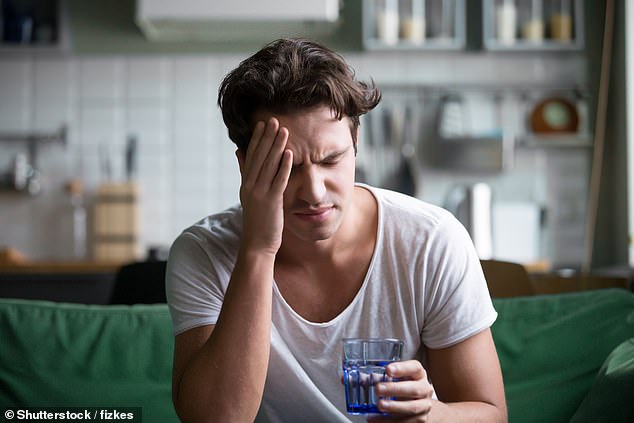
Taking painkillers such as ibuprofen and paracetamol can help reduce the pain in some cases, the NHS says
Lifestyle changes to prevent a migraine
Knowing what triggers migraines and making a lifestyle changes to mitigate these can help stop migraines in their tracks.
‘As with everything, being aware of what triggers your symptoms is helpful, and maybe even keeping a migraine or headache diary, in order to try and find triggers and avoid them or reduce them to prevent a migraine,’ said Dr Patel.
Some foods can be a trigger for migraines, according to the NHS.
So, keeping note of what foods or drinks potentially trigger them could help.
It also helps to stay hydrated and limit how much caffeine and alcohol you drink, the NHS says.
It adds that keeping a healthy weight, eating at regular times, getting regular exercise and sleep as well as managing your stress are all factors that can reduce migraines.
Dr Patel echoes the NHS advice and said: ‘Other general advice is to try and carry out regular exercise, sleep and eat well balanced regular meals.
‘Try and ensure you stay well hydrated, and limit your intake of caffeine and alcohol.’

